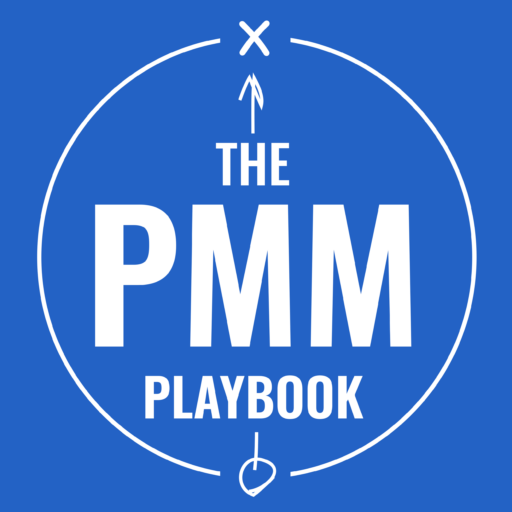If you were to ask ten different product marketing managers (PMMs) about their roles and responsibilities, you might get ten different answers. Even more perplexing, ask colleagues from within your own company from product, sales, or marketing to define product marketing, and you’ll likely be met with a mix of shoulder shrugs and uncertain murmurs of “I’m not quite sure.”
Despite this ambiguity, product marketing has cemented itself as a critical function within modern companies. With the buying economy’s evolution and the internet’s expansion, the ability to reach new customers and understand market dynamics has become increasingly vital. This importance is reflected in the growing presence of product marketing departments across industries, anticipating further expansion as markets continue to saturate.
Bridging Knowledge Gaps: The Journey from Good to Great
What differentiates a good PMM from a great one? Knowledge, effort, and experience. Understanding what you need to know, the steps required to bridge that gap, and then diligently working to close it are what set top performers apart. This process involves continuous learning and adapting—a commitment to improving one’s craft through years of experience and experimentation.
Some of the key roles of a PMM:
- Storyteller: A PMM must be the chief evangelist for their product, capable of weaving compelling narratives that convey the product’s value and benefits and telling a story that resonates with the target audience and their needs. This involves simplifying complex ideas and speaking in a tone the audience will understand.
- Voice of the Customer: One of the most important roles is advocating for your customers. When product decisions are being made, there needs to be someone in the organization looking out for the customer’s best interests. That role typically falls on the PMM. This requires a PMM to have a voice in influencing product development and knowledge of customers’ needs, and pain points to be their voice. Gaining that understanding might involve conducting surveys, speaking with customers, or researching market trends to ensure new features provide tangible benefits.
- Product Expert: Deep knowledge of your product is essential. Understanding the features, benefits, and unique selling points of each market segment enables strategic marketing and sales tactics. Internally, this expertise helps build trust and facilitates collaboration with cross-functional teams.
- Project Manager: Beyond typical project management, a PMM ensures alignment across different functions. This might involve coordinating with a dedicated go-to-market manager or a Scrum master to integrate plans effectively.
- Marketing Strategist: This role requires leading the overall marketing strategy for a product. It involves defining the target audience, selecting appropriate marketing channels, conducting market research, developing branding, and analyzing the outcomes to refine future strategies.
- Analyst: A PMM analyzes data relevant to the product and its users. This involves conducting market research, tracking performance metrics, and generating insights that inform strategic decisions.
- Researcher: Constant learning and experimentation are key. A PMM must continually expand their knowledge to make informed decisions that optimize product success. This ongoing research feeds into strategic experiments that can lead to significant product improvements.
The Dynamic and Strategic Role of a Product Marketing Manager
This extensive involvement across various facets of a company makes the role of a PMM engaging and versatile. They are expected to understand and articulate the vision behind a product and translate this vision into actionable strategies that can be clearly communicated across departments and to the public. This requires a deep understanding of both the product and the marketplace, ensuring that strategies are innovative and grounded in practical, achievable goals.
The strategic nature of the role doesn’t stop with product oversight. PMMs are also pivotal in aligning the various departments towards a common goal. Whether it’s working closely with the product team to fine-tune features, collaborating with sales to improve conversion rates, training customer support to enhance user satisfaction, or partnering with finance to ensure budget alignment, not to mention the work they do with marketing, legal and the executive team, a PMM acts as the glue within the organization, making sure that all pieces fit together seamlessly for the success of their product.
The flexibility and broad exposure provided by this role do more than just contribute to the company’s success; they also sculpt PMMs into well-rounded candidates for senior leadership positions. The skills acquired as a PMM—strategic thinking, cross-functional leadership, along with customer, competitor, and industry knowledge—are exactly those required in top executive roles, such as a Vice President (VP) of Marketing, Chief Marketing Officer (CMO), or even a Chief Executive Officer (CEO).
The ability to view the business landscape through a wide-angle lens becomes crucial the further you move up the corporate ladder. A seasoned PMM, accustomed to considering both the granular details of a product and the broader market dynamics, is well-prepared to take on these challenges. The transition from managing a product to leading a company is substantial, yet the foundational skills developed in product marketing create a natural pathway to these influential roles.
Proficiency across these diverse areas is more valuable than expertise in just one. Many PMMs have carved successful careers by excelling in a few areas while being competent in others. It’s about finding the right balance that works for you and your product.
We go more in-depth with the different roles that PMMs can take on in the “Introduction to Product Marketing” module of the PMM Playbook course. Sign up if you’re interested in learning more about it.

